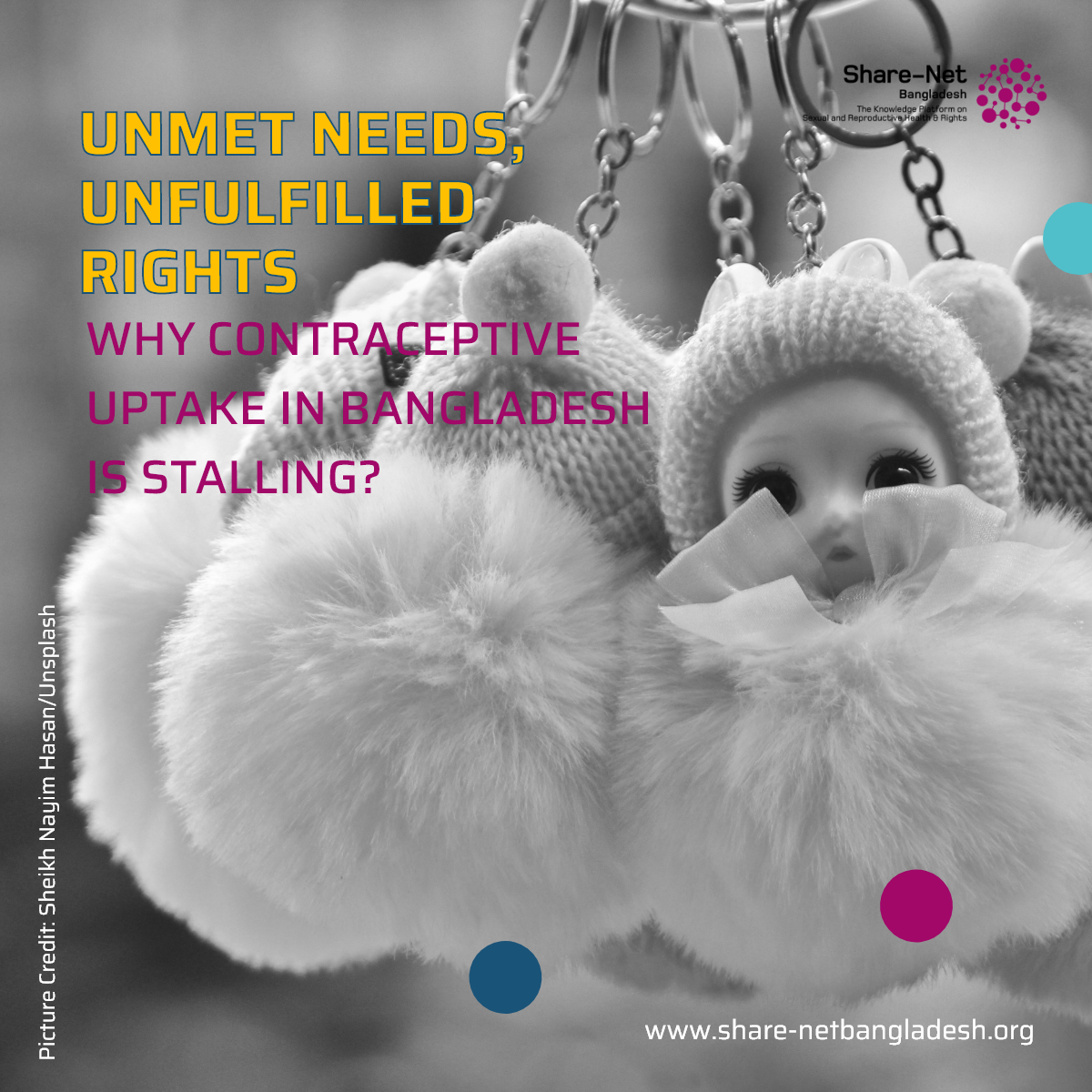Unmet Needs, Unfulfilled Rights: Why Contraceptive Uptake in Bangladesh is Stalling?
In Bangladesh, nearly 10% of women of reproductive age still face an unmet need for contraception—a statistic that has remained stagnant for over a decade. While Bangladesh was once hailed as a model for family planning in low- and middle-income countries, recent trends reveal a troubling standstill in contraceptive uptake. According to the 2022 Bangladesh Demographic and Health Survey, the use of modern contraception increased by only six percentage points in the last two decades, from 58% in 2004 to 64% in 2022.
This stagnation presents a critical challenge for Bangladesh’s efforts to improve sexual and reproductive health and rights (SRHR). Despite progress in reducing maternal and child mortality, the persistent unmet need for contraception slows the country’s ability to meet Sustainable Development Goals (SDGs) related to health and gender equality. The unmet need for contraception is not just a matter of numbers; it reflects a broader struggle for women’s autonomy over their reproductive choices, an issue central to SRHR.
A key contributor to this stagnation is the shift in government focus. Bangladesh’s once-strong family planning programs, which relied on field-level services and routine home visits by Family Welfare Assistants (FWAs), have weakened. FWAs, who were instrumental in distributing contraception at the household level, now face reduced support, inadequate salaries, and growing job dissatisfaction. Many FWAs are now responsible for additional tasks, such as vaccination, diluting their focus on family planning.
Moreover, access to modern contraception has become increasingly privatised, with pharmacies and private clinics now the primary sources. While this shift offers options for those who can afford it, it leaves out poorer and more vulnerable populations. Rural women, for example, often struggle to access healthcare centres, which are overcrowded and lack the privacy necessary for family planning discussions.
Cultural barriers also persist, further complicating the situation. In many parts of Bangladesh, contraception is still seen as a women’s issue, with limited male involvement. Additionally, societal norms and religious beliefs discourage open discussions about sexual and reproductive health, making it difficult for women to access contraception without facing stigma.
The implications of these issues are profound. Around 22% of live births in Bangladesh result from unintended pregnancies, while short interval pregnancies remain common. These trends not only affect maternal and child health but also hinder women’s ability to pursue education, employment, and other personal goals. The lack of contraceptive access reinforces gender inequalities, denying women control over their reproductive rights.
Addressing these challenges requires a renewed governmental commitment to SRHR. First, strengthening field-level family planning services is crucial. FWAs need more support, proper training, and incentives to prioritise family planning. Additionally, healthcare facilities must ensure privacy and adequate time for contraceptive counseling, especially for underserved populations.
In a country where reproductive health remains a deeply sensitive issue, comprehensive education and awareness are essential. Normalising conversations about contraception, involving men in family planning decisions, and dismantling cultural taboos will go a long way in improving access and autonomy for women.
Bangladesh’s journey in family planning has been remarkable, but to meet SDG targets and truly empower women, the country must overcome its current stagnation. The power to choose when and how many children to have is a fundamental right, and ensuring access to contraception is key to realising that right.
Source: The Daily Star
Picture: Unsplash


